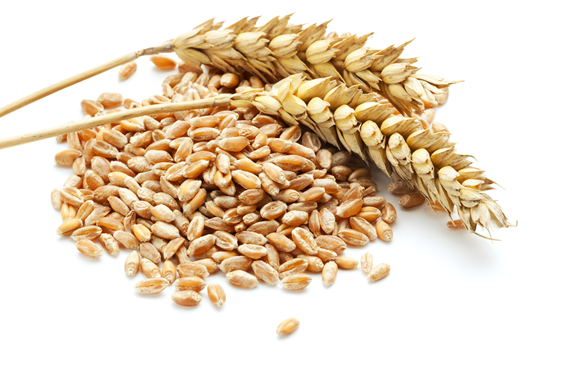- Have any questions?
- +1 905-239-3900
- info@mynaturalclinic.com
Should You Worry About Wheat Or Gluten?

Tips To Get Rid Of Your Sugar Cravings For Good
December 19, 2015
Detox Salad
January 18, 2016Written by Dr. Sandra Miranda, ND
Diets that are gluten free or wheat free are becoming a lot more popular nowadays. Are these recommendations just a fad or is there some truth to them?
What I am certain of is that in my practice I see many different types of health problems improving when patient’s stop eating gluten such as, bloating and gassiness, constipation or diarrhea, skin rashes, foggy thinking and fatigue, and even hyperactivity in ADHD kids. I even had one patient’s hot flashes significantly decrease when she stopped eating bread. These are patients who are not celiac and still feel better when they are off gluten- and it may not be 100% off but at least 90% off.
You don’t have to be allergic to gluten or wheat but you can have an intolerance or sensitivity to it. Now just to clarify, gluten is a protein present in some grains and it is what causes some individual’s reactions to grains such as wheat, spelt, rye, triticale, oats, barley and kamut.
If you are intolerant to gluten then eating these grains can causes intestinal cell damage resulting in a condition called primary chronic intestinal malabsorption that typically and most severely involves the small intestine.
Classically, these patients can suffer with chronic inflammation, fatigue, increased abdominal fat, diarrhea or constipation, bloating and cramping, anemia, skin disorders, headaches, joint pain or stiffness, recurrent infections, mucous formation, etc. Even autoimmune diseases have been linked to gluten sensitivity. Testing for food intolerances through a blood sample is the best way of determining if you are sensitive to gluten or not.
ALLOWED FOODS (Fresh is preferable to frozen which is preferable to canned)
• Corn – flour, cornmeal, • Rice (brown, wild, basmati)
• Rice bran, rice flour • Potato, potato starch flour
• Cassava, yam, arrowroot • Amaranth
• Millet • Buckwheat • Gluten free breads
• Tapioca • Quinoa
• All meats, fish or poultry • Eggs
• Vegetables – fresh, frozen • Dried beans & lentils
• Fruits
FOODS TO AVOID – Watch out for ingredients like cereal, starch, flour, thickeners, emulsifiers, gluten, stabilizers, hydrolyzed vegetable proteins, etc.
• All wheat, spelt, rye, triticale, oats, barley, kamut which includes most breads and pasta
• Cereals with bran, graham, wheat germ, malt, bulgur, millet or teff
• prepared meats (hot dogs, luncheon meats)
• Infant and junior dinners containing flour thickeners
• White sauces, creamed soups or vegetables—any sauces containing grain thickeners
• Commercially processed beans
• Thickened or prepared fruits, some pie fillings
• Cakes, cookies, most baked goods
• Caramel coloring and MSG may also not be well-tolerated
What about sprouted bread like Ezekiel bread?
The sprouts still contain some gluten, but sprouted grain enzymes break down a good deal of the grains’ normally harmful ingredients. They are more nutritious than merely whole grains. This is an option that you can try, many patients that don’t do well with wheat or gluten, can still get away with eating this delicious sprouted bread without any health concerns.
If you would like to get a food intolerance test, please contact us at the clinic 905-239-3900. We also offer 10 minutes free “Meet & Greets”. We will be happy to help.

